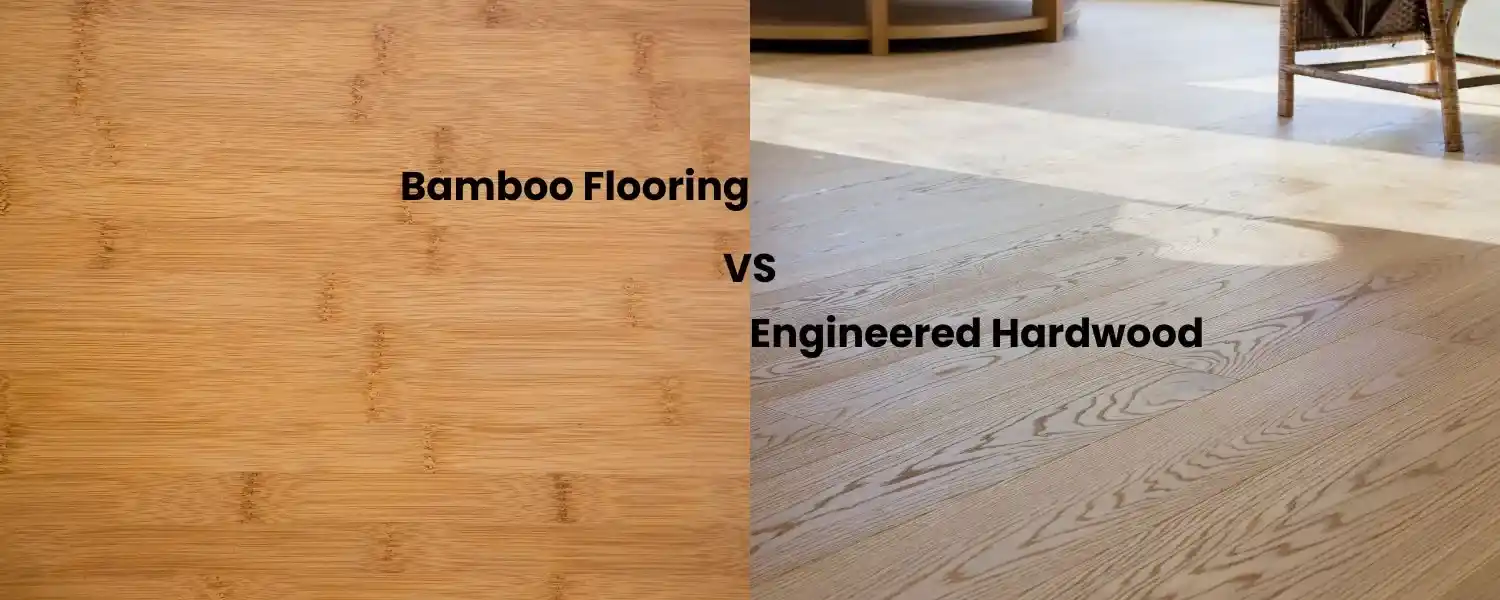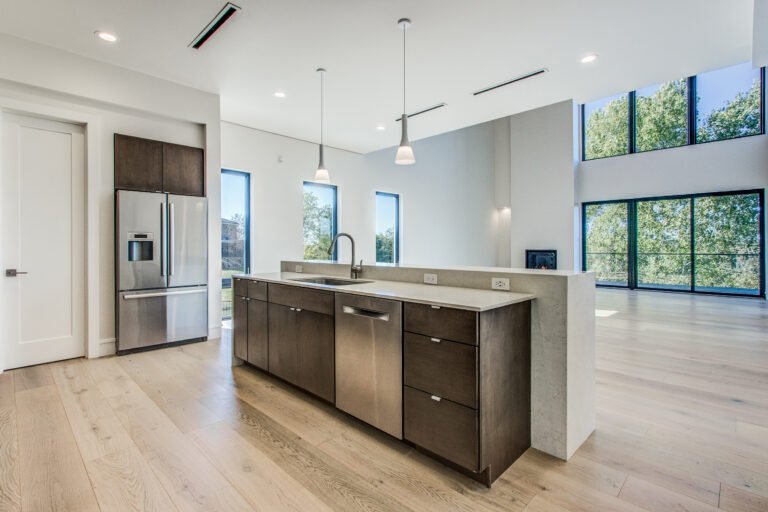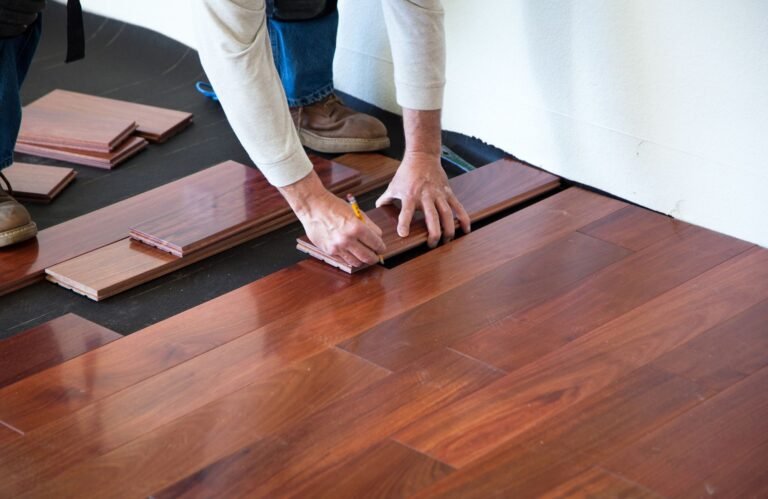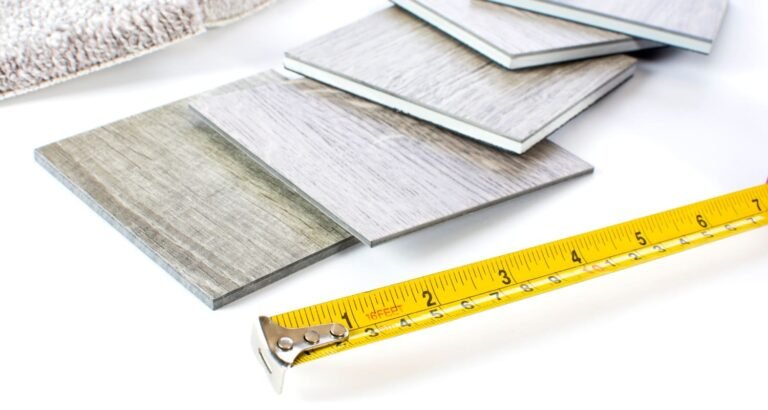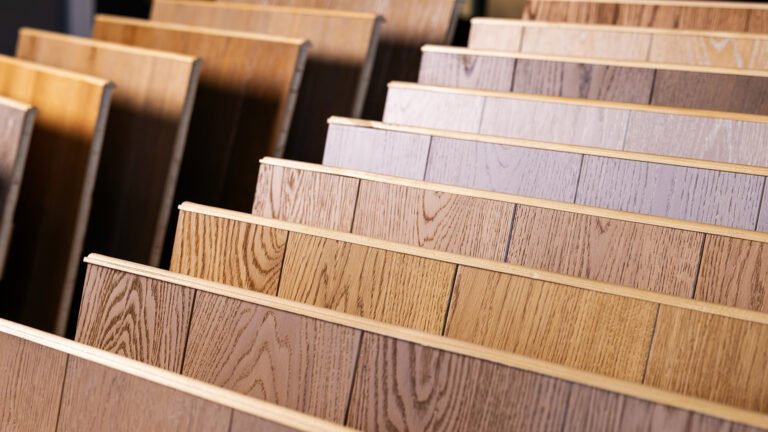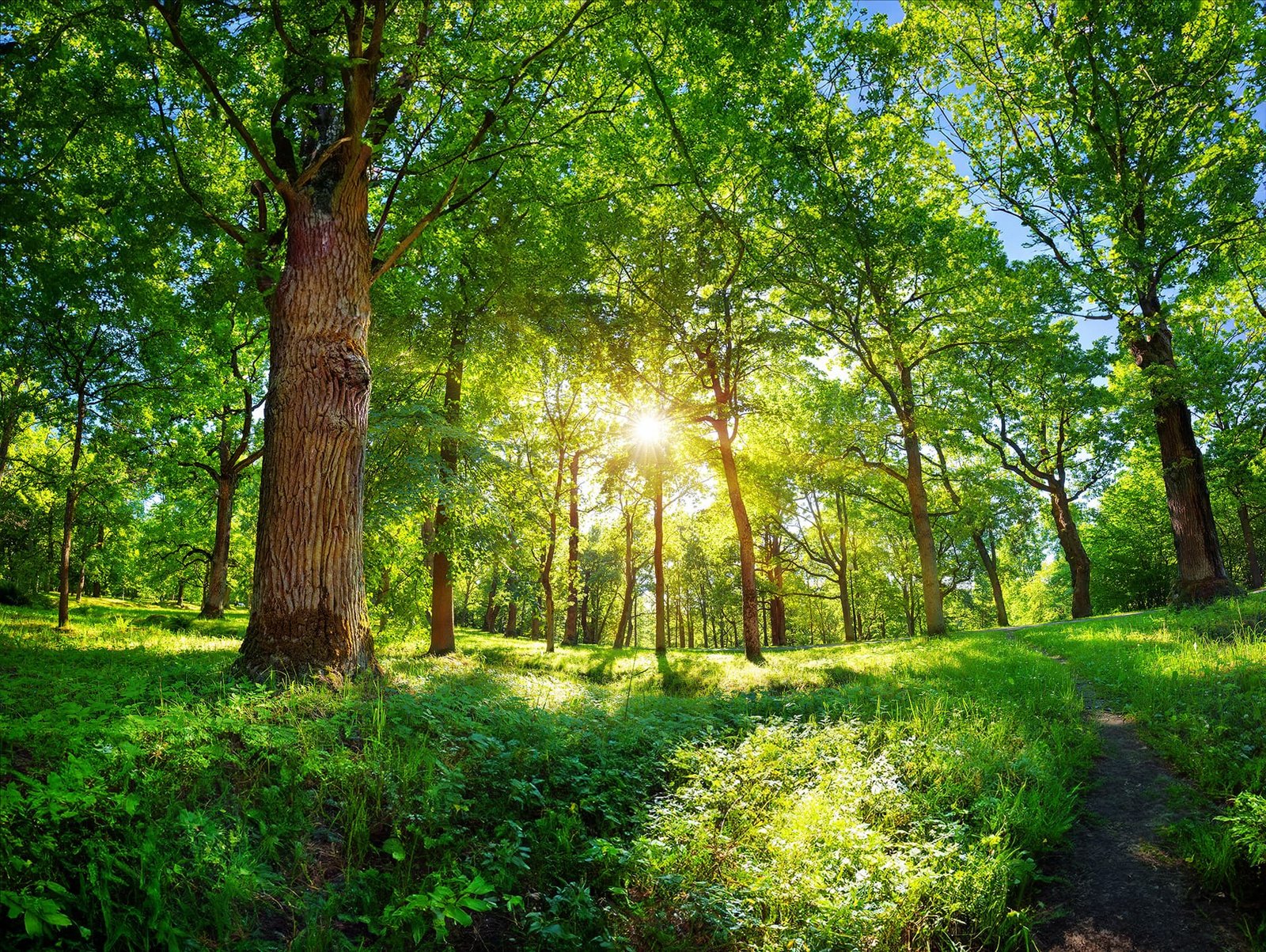Which is Better: Bamboo Flooring Vs Engineered Hardwood?
Are you considering upgrading to a more modern wood flooring look but need help choosing between bamboo and engineered hardwood while shopping online or in a retailer showroom? Many people, from commercial builders to home decor experts to DIY minded homeowners find themselves in the same situation. Selecting the right option can be time-consuming and challenging due to the many choices available. However, there’s no need to worry! In this article, we’ll explore bamboo flooring vs engineered hardwood in detail, providing you with the necessary knowledge to make a well-informed that would make any expert interior designer or building contractor proud. So, let’s examine the differences and determine which option suits your requirements.
Understanding Engineered Hardwood Flooring
What is Engineered Hardwood Flooring?
Engineered hardwood is a type of flooring made from several layers of wood. Unlike solid hardwood, which comes from a single piece of wood, engineered hardwood comprises layers of wood arranged in a cross-grain pattern.
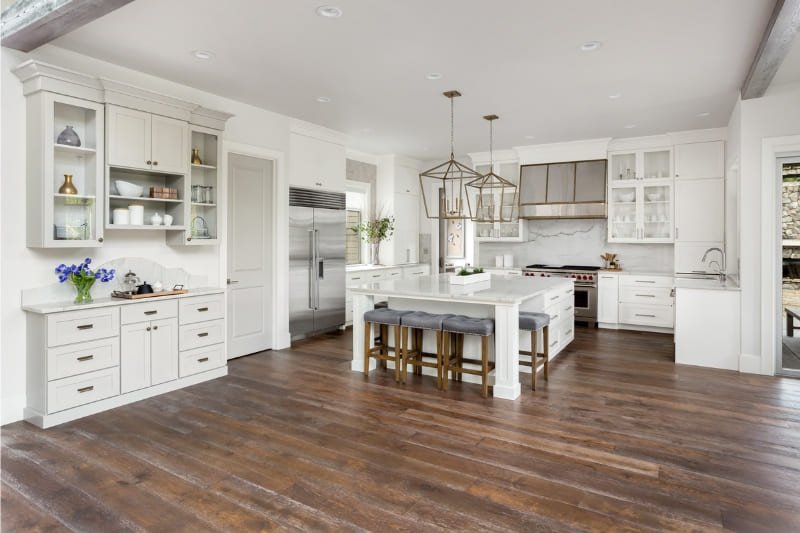
Layers of Engineered Hardwood
The typical construction of engineered hardwood involves three main layers:
- Top Layer: This uppermost layer, known as the wear layer, is made from scratch-resistant real hardwood veneer. It gives the flooring its trademark wood-like appearance and texture.
- Core Layer: Situated beneath the wear layer, the core layer is made of water-resistant high-density fiberboard (HDF) or plywood. It serves as the flooring’s foundation and enhances stability and durability.
- Bottom Layer: The bottom or backing layer provides additional support and stability to the flooring. It comprises plywood or another type of wood material.
Advantages of Engineered Hardwood
Engineered hardwood has several key advantages:
- Enhanced Stability: The construction of engineered hardwood enhances its stability, reducing the likelihood of expansion and contraction.
- Versatility: We can install engineered hardwood in different environments and it is compatible with radiant heating systems, providing flexibility in installation options.
- Cost-Effectiveness: Engineered hardwood tends to be more economical, providing homeowners with quality flooring at a lower cost.
- Wide Range of Styles: Engineered hardwood is available in diverse species, finishes and plank sizes, allowing homeowners to achieve their desired aesthetic.
- Environmental Considerations: Engineered hardwood not only is long-lasting but also is manufactured using less wood material, reducing its environmental impact. Many engineered hardwood products also utilize eco-friendly adhesives and finishes, improving their environmental sustainability.
Learn more about Engineered Hardwood in our comprehensive blog. “What is Engineered Hardwood Flooring?“
Understanding Bamboo Flooring
What is Bamboo Flooring?
Bamboo is the main source of bamboo flooring. It is a fast-growing grass plant that matures in just a few years. Bamboo flooring is manufactured by slicing bamboo stalks into strips, which undergo pressing and lamination processes to form planks.
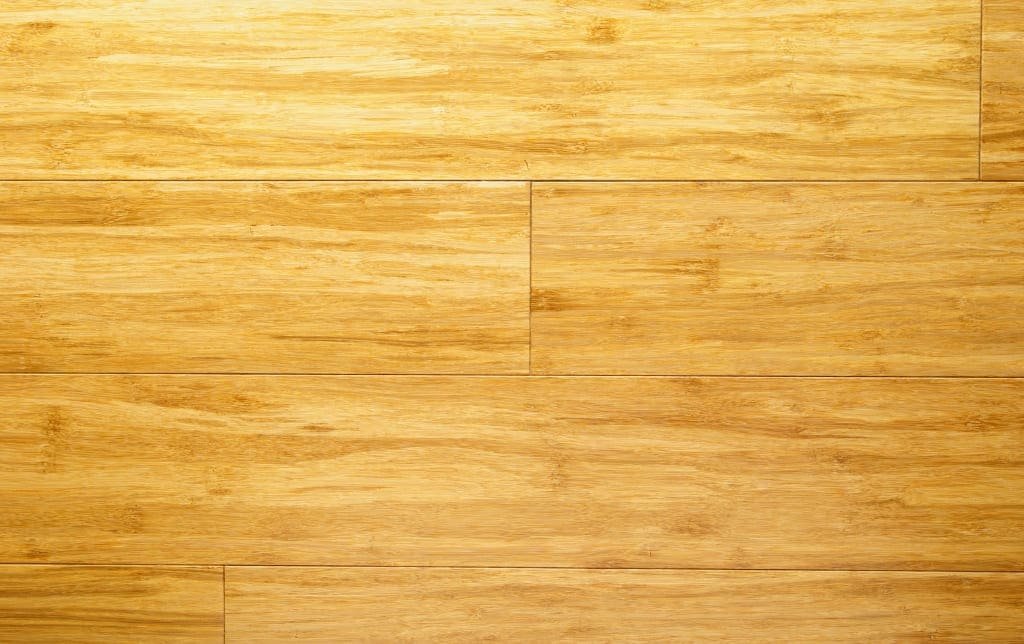
Is Bamboo a Wood?
Although bamboo is commonly called wood, it is technically a grass. However, it has properties similar to traditional hardwood, making it a great flooring option.
Layers of Bamboo Flooring
The construction of bamboo flooring involves three layers:
- Top Layer: This layer consists of scratch-resistant of bamboo veneer, giving bamboo flooring its desired appearance and texture.
- Core Layer: Below the top layer is the core layer, which provides added stability. It comprises multiple layers of bamboo strips arranged in a cross-grain pattern or a more contemporary pattern like herringbone of chevron.
- Bottom Layer: The bottom or backing layer supports and stabilizes the flooring. It comprises plywood or other water-resistant wood materials.
Advantages of Bamboo Flooring
Bamboo flooring offers several advantages, including:
- Renewable Resource: Bamboo is a rapidly growing resource, making it an environmentally sustainable flooring option. Some species mature in less than 3 to 5 years.
- Durability: Bamboo flooring is long-lasting, highly durable and strong, resistant to dents, scratches and wear.
- Variety of Styles: Homeowners can choose from natural, carbonized and stained finishes in trending floor colors, providing a range of style options to suit their preferences.
- Moisture Resistance: Bamboo flooring is moisture resistant, making it suitable for high-humidity areas.
- Easy Maintenance: Bamboo flooring requires relatively low maintenance. Regular sweeping and occasional mopping are needed to keep it clean and looking its best.
Key Difference Between Bamboo Flooring vs Engineered Hardwood
| Aspects | Engineered Hardwood | Bamboo Flooring |
| Appearance | Resembles traditional hardwood with a variety of wood species and finishes | Distinctive grain pattern with a range of natural colors and finishes |
| Cost | Moderate, varying based on wood species and quality | Generally more economical, but prices vary based on quality and finishes |
| Size | Available in various plank sizes with varying widths and lengths | Typically available in standard plank size similar to hardwood |
| Installation | Can be glued, nailed, or floated over various subfloors | Can be glued or floated |
| Durability | Resistant to scratches and dents but may show wear over time | Naturally durable, but prone to scratches and dents |
| Lifespan | Lasts for 20 to 30 years or more with proper care and maintenance | Lasts for 15 to 25 years only |
| Maintenance | Requires regular sweeping and occasional mopping; may also require refinishing | Requires regular sweeping and gentle cleaning to maintain appearance |
Appearance
Engineered Hardwood
Engineered hardwood offers various finished or prefinished options that replicate the patterns and shades of traditional hardwood. With numerous variations on finish and hundreds of species such as oak, maple and walnut to choose from. It provides a timeless aesthetic that complements any interior style.
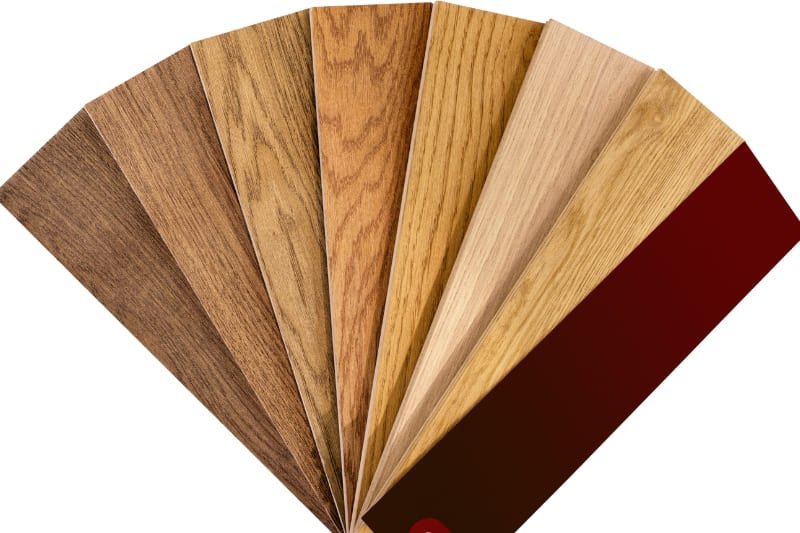
Bamboo Flooring
Bamboo flooring is distinct, showcasing natural bamboo grain patterns and color variations. It adds a modern touch to any space.
Which is the best? Bamboo Flooring Vs Engineered Hardwood?
In terms of appearance, engineered hardwood flooring provides a classic and versatile look that complements various design styles. This look makes it the preferred choice for architects, interior designers, showroom retailers and DIY homeowners seeking a timeless aesthetic.
Cost
Engineered Hardwood
Engineered hardwood has a moderate price range. The price varies based on the chosen wood species and the product’s quality. It may require a higher upfront investment than some flooring options. Its durability and longevity make it cost-effective in the long run.
Bamboo Flooring
Bamboo flooring is more affordable. However, prices can vary based on factors such as the quality of the bamboo and the finishes applied. Bamboo flooring is cheaper upfront. But it offers durability and attractiveness, like engineered hardwood.
Which is the best? Bamboo Flooring Vs Engineered Hardwood?
Engineered hardwood is more expensive. However, its durability and long-term value often make it a better investment.
To estimate the cost of Engineered Hardwood Flooring, read our other blog, “How Much Does Engineered Hardwood Flooring Cost?”
Size
Engineered Hardwood
Engineered hardwood flooring comes in different standard plank sizes to fit kitchens, basements and other residential flooring applications, providing homeowners with various width and length options. This versatility allows homeowners to select the plank size that best suits their space and design preferences.
Bamboo Flooring
Bamboo flooring, on the other hand, shares the same plank size as hardwood flooring. While there may be variations in size options depending on the manufacturer, bamboo flooring offers a range of plank sizes that can accommodate different installation needs and design aesthetics.
Which is the best? Bamboo Flooring Vs Engineered Hardwood?
When comparing bamboo flooring and engineered hardwood, both options offer a variety of sizes. These sizes can fit various installation requirements and design preferences. However, engineered hardwood provides a greater selection of plank sizes. This option gives homeowners more flexibility in achieving their desired look.
Installation
Engineered Hardwood
Contractors, project managers and DIY-ers have multiple options for installing engineered hardwood. These options include gluing, nailing or floating over different subfloors. This versatility makes it suitable for various installation environments and preferences.
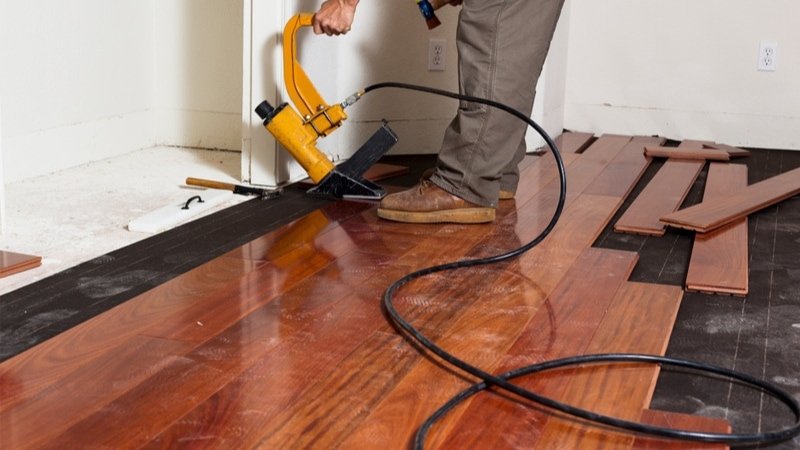
Bamboo Flooring
Professional contractors install bamboo flooring using various methods, like gluing or floating. This flexibility allows for ease of installation in different spaces and conditions.
Which is the best? Bamboo Flooring Vs Engineered Hardwood?
Regarding installation, both flooring options offer flexibility and adaptability to different methods. However, engineered hardwood provides more installation options, making it the better choice.
Learn how to install Engineered Hardwood from our blog, “Engineered Hardwood Flooring Installation Made Easy.“
Durability
Engineered Hardwood
Engineered hardwood is known for its durability. It resists scratches, dents and wear. Its layered construction enhances stability, making it less prone to warping or damage from temperature change.
Bamboo Flooring
Bamboo flooring is naturally durable but susceptible to scratches and dents. Its durability may differ based on factors like quality and finish.
Which is the best? Bamboo Flooring Vs Engineered Hardwood?
Both bamboo flooring and engineered hardwood offer strong resistance to everyday wear and tear. However, engineered hardwood holds a slight advantage over bamboo flooring in terms of durability due to its layered construction.
Lifespan
Engineered Hardwood
Engineered hardwood has a long lifespan when properly maintained. Its flooring can last 20 to 30 years or more with regular care.
Bamboo Flooring
Bamboo flooring has a long lifespan. Well-maintained bamboo flooring has a lifespan of 15 to 25 years.
Which is the best? Bamboo Flooring Vs Engineered Hardwood?
When it comes to lifespan, engineered hardwood outlasts bamboo flooring. If longevity is your priority, engineered hardwood is the ideal choice.
Maintenance
Engineered Hardwood
Engineered hardwood flooring is low-maintenance and easy to care for. Sweep or vacuum regularly to remove dust and debris, and occasionally mop as needed. Periodic finishing may be necessary to maintain its appearance.
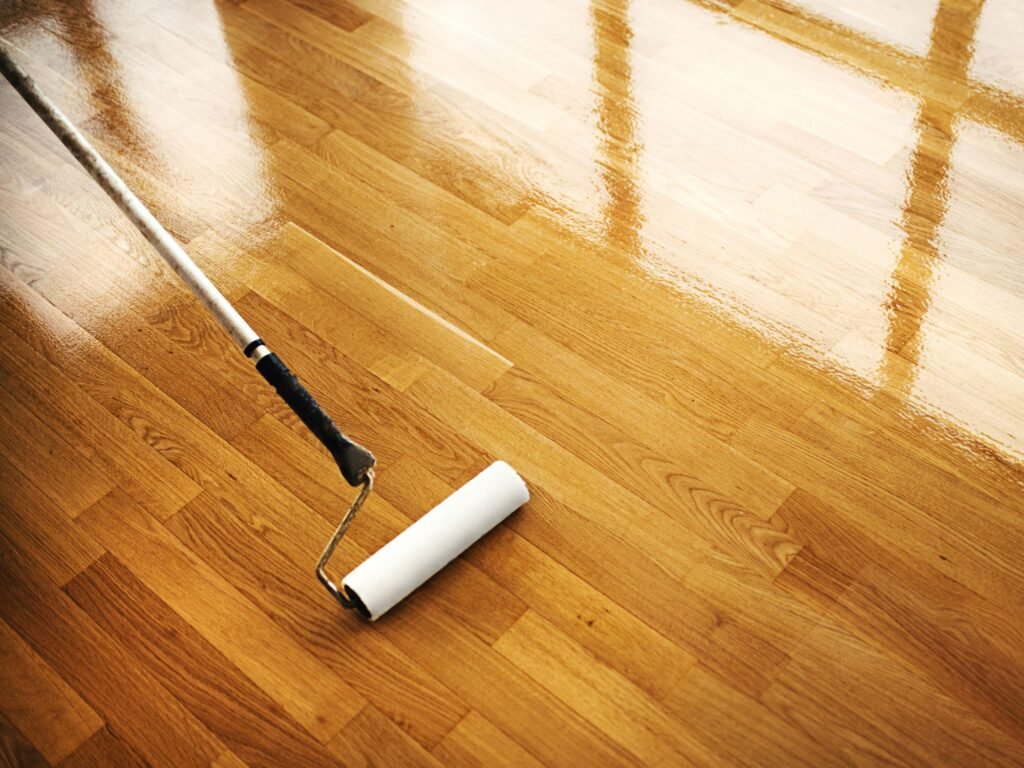
Bamboo Flooring
Bamboo flooring also requires simple maintenance. Regular sweeping, vacuuming and occasional mopping keep it in pristine condition. However, compared to engineered hardwood flooring, bamboo may require more frequent refinishing.
Which is the best? Bamboo Flooring Vs Engineered Hardwood?
Regarding maintenance, engineered hardwood has a clear advantage over bamboo flooring. Its less frequent need for refinishing makes it a convenient option for homeowners who prefer low-maintenance flooring.
Which Flooring Should You Choose? Bamboo Flooring Vs Engineered Hardwood?
When deciding between bamboo flooring and engineered hardwood, it is important to consider various factors to determine the optimal choice. Both types of flooring have benefits, but engineered hardwood has advantages over bamboo.
Engineered hardwood flooring enhances the beauty of any space with its timeless and versatile aesthetic. It boasts a wide range of wood species and finishes, making it compatible with any interior style. Additionally, engineered hardwood is highly durable and long-lasting, making it suitable for areas with high foot traffic. It is a convenient and durable flooring option requiring minimal maintenance and is less susceptible to scratches and dents.
Upgrade Your Home’s Aesthetics with Engineered Hardwood
Engineered hardwood is a prime flooring choice, offering durability, style and value. It enhances room aesthetics while withstanding daily use. Choosing engineered hardwood provides a floor that suits various styles, ensuring lasting beauty and minimal maintenance. Its layered design offers stability and adaptability, ideal for a luxurious yet practical home environment.
We understand the importance of finding the perfect flooring for your space at Villagio Wood Floors. We are a California-based wholesaler specializing in engineered hardwood and offer top-quality that meet the rigorous specifications of certified architects and interior designers. Villagio Wood Floors supports your business, whether you want to upgrade your product offerings or meet customer demand. Explore our collection today and upgrade your inventory with the timeless elegance of engineered hardwood flooring.
Bamboo Flooring Vs Engineered Hardwood? – FAQs
Can engineered hardwood be refinished like traditional hardwood flooring?
Engineered hardwood, like traditional hardwood flooring, can be refinished. However, the hardwood veneer’s thickness determines how often it can be refinished.
Is bamboo flooring prone to scratches and dents?
While bamboo flooring is renowned for its durability, it is prone to scratches and dents, especially in high-traffic areas.
Does engineered hardwood offer better sound insulation than bamboo flooring?
Engineered hardwood flooring, with its layered construction, has better sound insulation than bamboo flooring. While not soundproof, the layers have designs that enhance sound absorption, a feature solid bamboo flooring lacks.
Can engineered hardwood be installed over radiant heating systems?
Yes, engineered hardwood is compatible with radiant heating systems. However, it is crucial to follow the manufacturer’s guidelines and recommendations when installing engineered hardwood over radiant heating systems.
Which flooring option is more susceptible to fading from sunlight, bamboo or engineered hardwood?
Both bamboo flooring and engineered hardwood can fade when exposed to direct sunlight for a long time. However, the extent of fading depends on factors such as the wood species, finish applied and UV protection.

